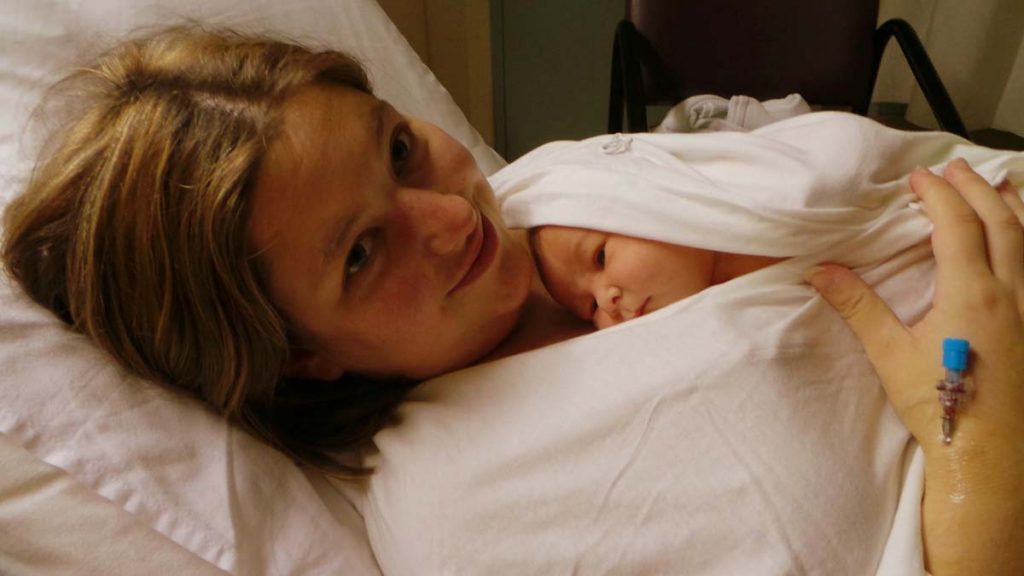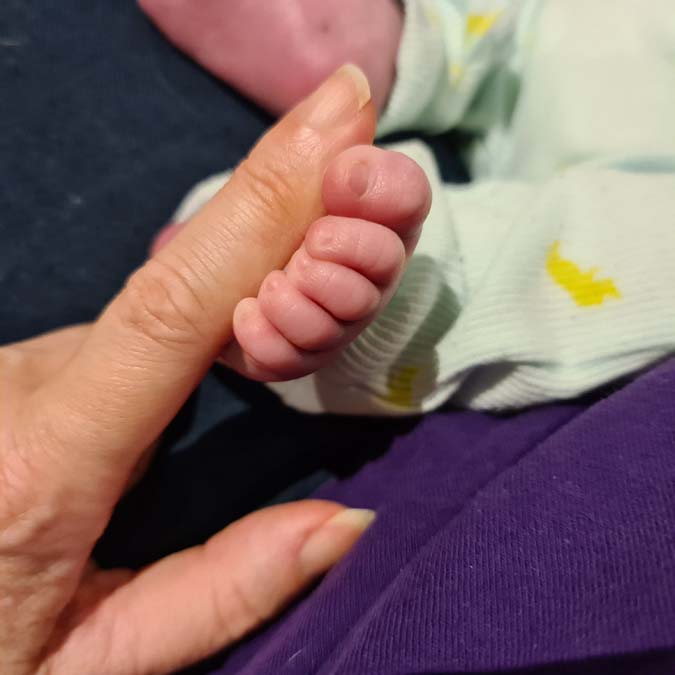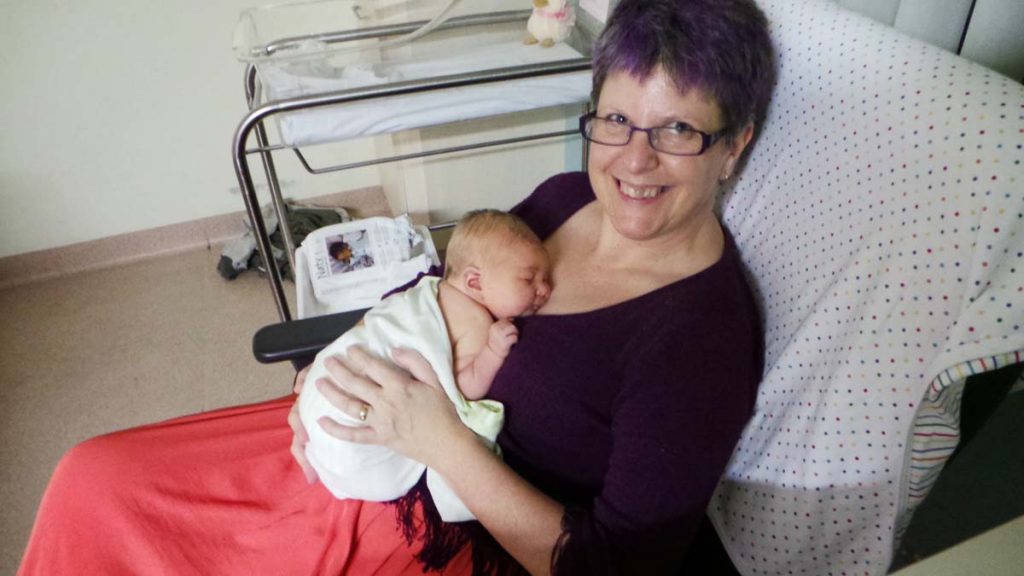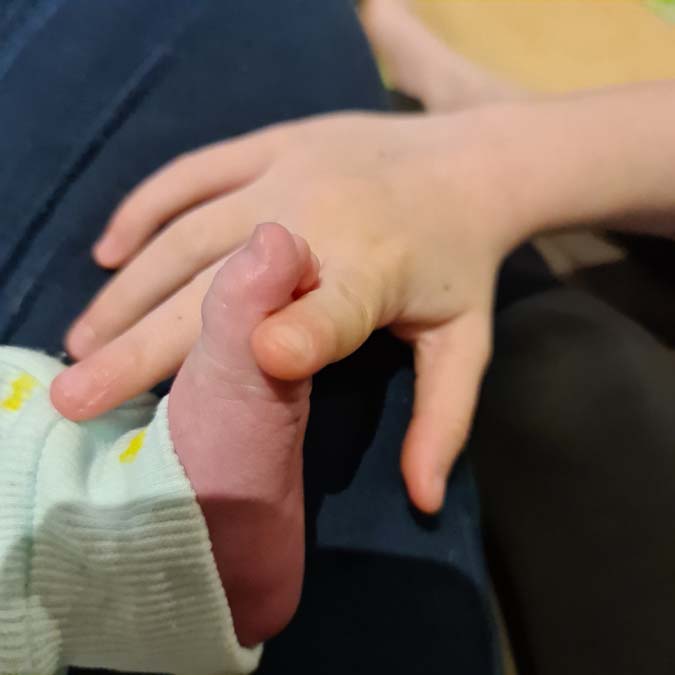By Yvette O’Dowd
Touch is an overlooked sense, yet one which is incredibly powerful in the bonding between parent and child. Ashley Montagu wrote about this in his acclaimed book “Touching: The Human Significance of the Skin” in 1971:
“Among the most important of the newborn infant’s needs are the signals it receives through the skin, its first medium of communication with the outside world”
Mothers and those supporting them have had to relearn the secrets of skin contact in this modern world. Science has identified and named behaviour lost to maternal and infant care, as it was institutionalised in the 20th century.
Mammals keep their babies close because it keeps them alive: regulating temperature, stimulating breathing, and supporting frequent breastfeeding. Separating the mother-baby dyad (something that consists of two elements or parts.) – through rigid management strategies of schedules and independence – makes no sense biologically.
In the 1990s Nils Bergman, a Swedish specialist in perinatal neuroscience, studied skin to skin contact between mother and baby in the neonatal period and introduced the concept of “Kangaroo Care” into neonatal intensive care units (NICU) to complement or even replace incubation for preterm infants. He had observed the practice in South American communities who could not afford this expensive equipment yet kept their most vulnerable babies alive and thriving.
Also in the 1990s, another Swedish researcher Ann-Marie Widstrom studied the innate abilities of newborn infants to seek the breast instinctively when left uninterrupted after birth, in what became known as “the nine stages of newborn instinctual behaviour” or, as parents often know it,
“the breast crawl.”
US International Board Certified Lactation Consultants (IBCLC) Dr Christina Smillie and Suzanne Coulson popularised baby-led attachment and laid-back breastfeeding (also known as biological nurturing) in the early 2000’s and changed how mothers and professionals approach latching, with the baby taking the lead and mothers allowing them the skin contact they need to navigate to the breast instinctively, even months after birth.
- Practice kangaroo care at home: your baby doesn’t need to be born prematurely to benefit from spending time in direct skin to skin with their mother, father and other family members. Dress them in just a nappy, remove clothing from your own chest area and snuggle baby close. Cover their body with a light wrap or blanket, leaving their head and face “visible and kissable”. You can do this sitting up or lying down but adults should not fall asleep while holding their baby this way.
- Baby massage is a simple way to connect with your baby: a simple hand or foot massage at nappy change time or a full body massage after a bath is a lovely experience which can be shared on a regular basis. You will find directions online or look out for books or videos on the subject.
- Babywearing: at home, you can go topless with your baby tucked in a stretchy baby carrier. Out of the house, even the contact of their face against your upper chest is a valuable experience for your little one.
- When breastfeeding: allow as much skin contact as possible with your baby. Parents who are feeding with a bottle can open or remove garments to allow touch to be apart of their feeding relationship at times when it is practical.
- Consider your baby’s clothing: limit using footed suits and mittens to allow your infant to experience their environment through touch. Babies use their hands when breastfeeding as an aid to seeking and latching onto the breast. Try not to restrict this behaviour with mittens or wraps as they will become more frustrated.
The days of wrapping babies up in a bundle of tight swaddles are gone. We now understand how important it is for newborns to connect with their parents and carers through the largest organ in the human body: their skin.
Yvette O’Dowd is not your typical grandmother! This mother of three and ‘Granny’ of three has been a breastfeeding counsellor since 1992. In 2014, Yvette established the Southern Natural Parenting Network, incorporating South Eastern Babywearing Group. With 11,000 members world-wide, the group supports parents interested in breastfeeding, babywearing, co-sleeping, baby-led weaning and modern cloth nappies and other aspects of gentle, natural parenting.






